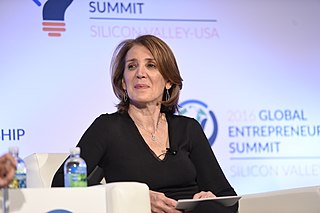A Quote by Ruth Porat
I have not been a believer of point guidance. It really limits your flexibility to do what you want. It leads to behavior that is not supportive of long-term shareholder value.
Related Quotes
Shareholder value is the result of you doing a great job, watching your share price go up, your shareholders win, and dividends increasing. What happens when you have increasing shareholder value? You're delivering better employees to their communities and they can give back. Communities are winning because employees are involved in mentoring and all these other things. Customers are winning because you're providing them new products.
Being captive to quarterly earnings isn't consistent with long-term value creation. This pressure and the short term focus of equity markets make it difficult for a public company to invest for long-term success, and tend to force company leaders to sacrifice long-term results to protect current earnings.
Well, I am a great believer in supercompensation. Short term overtraining leads to long-term success. I can hear the complaints about injuries, but, in truth, not too many of us suffer injuries that lead to surgery, according to those studies in the 1950?s. In fact, if you are not a druggie and have some common sense, I think you can afford to train harder than you think.
The most challenging thing for a young entrepreneur is to think long-term. When you are 22 years old, it’s hard to think in 22-year increments since that’s as long as you’ve been alive. But it’s really important to view your life as an entrepreneur as a long journey that consists of many short-term cycles.


































